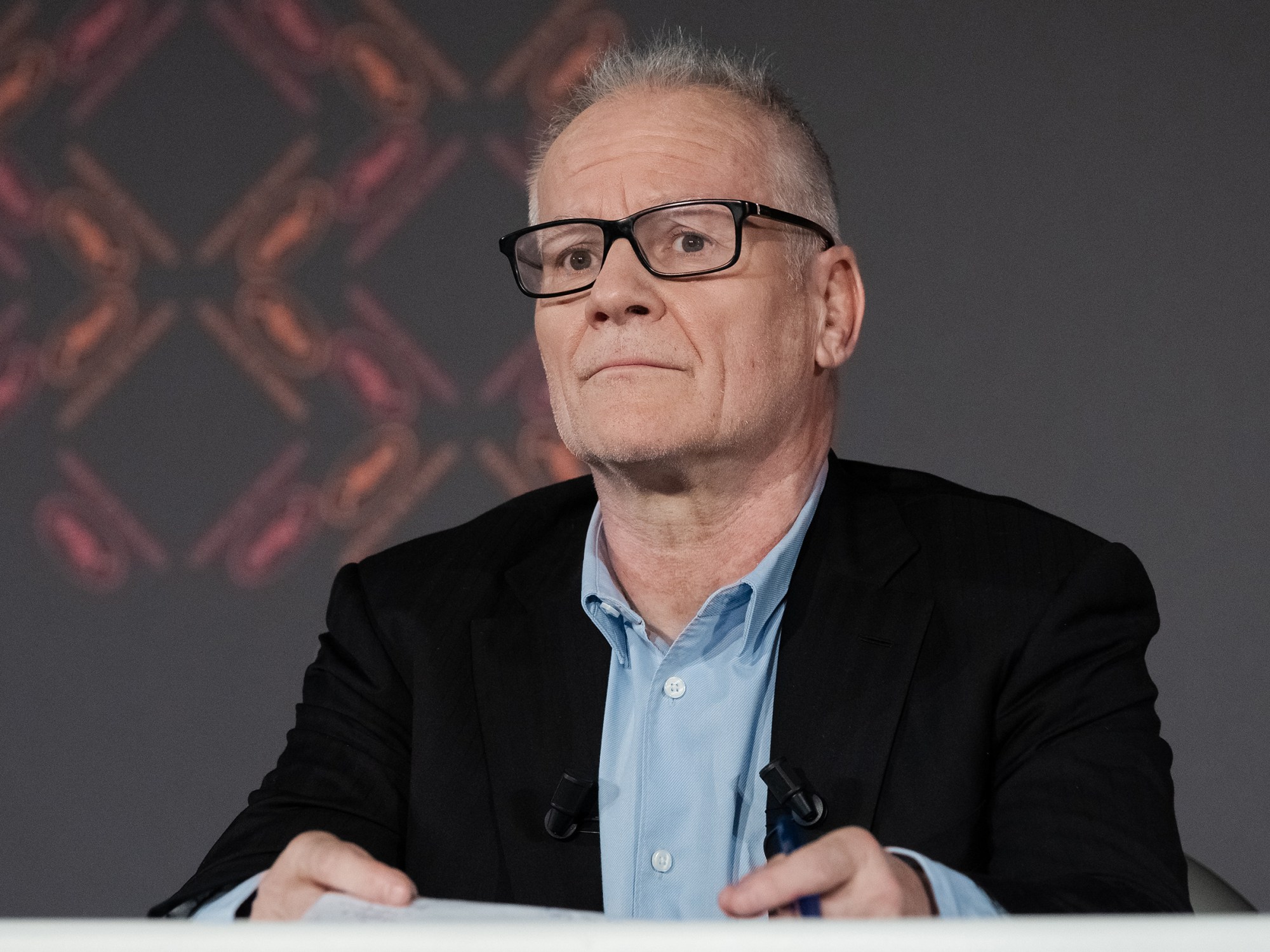
- Interviews
Thierry Frémaux, the Director of the Cannes Film Festival on the 76th Edition
As the director of the Cannes Film Festival, Thierry Frémaux can be rightly credited for having championed many emerging international talents over the years, while nurturing veteran filmmakers and, more recently, taking risks by saying no to streamers if they refuse to have theatrical distribution.
A week prior to the opening of the festival, he spoke via Zoom to the Hollywood Foreign Press to explain how this 76th edition will be different. In 2020 the festival was cancelled and the following year it took place in July despite the big challenge to organize such an event in the middle of the pandemic. And the festival is still a very much in-demand event. For proof this year, 10000 potential spectators and professionals had to be turned down, due to the lack of spaces in theaters.
There were a lot of talks about the future of the cinema in 2020 and 2021, but cinema came back. The festival will have Scorsese’s Killers of the Flower Moon by Apple, distributed theatrically by Paramount. So having Apple as a streamer illustrates that now in 2023, Cannes and Hollywood can somehow work together. And Frémaux is quite proud that Cannes is a showcase for that.
He is equally proud to have seven female directors in the official competition (such as Jessica Hausner, Alice Rohrwacher, Catherine Corsini, Kaouther Ben Hania…), more than in any festival before.
Frémaux states that if during the selection process, (in which the committee saw around 2,000 movies) they had to choose between two movies and one directed by a man and the other by a woman, they picked the latter one.
He’s bringing back the old glory of the Cannes Film Festival with a plethora of goods, movies by giants like Steven Spielberg, Martin Scorsese, Steve McQueen and Wes Anderson, a few well-known returning previous winners (Nanni Moretti, Nuri Bilge Ceylan, Marco Bellochio, Ken Loach or Wim Wenders), and enlisting an impressive large group of high-quality sponsors to finance the effort.
Frémaux has always been open to new talent. This year is no exception, with several filmmakers’ first features. That reminds him of what Sergio Leone said in 1984 at the press conference to promote his last film, Once Upon a Time in America, screened out of competition. “I know you pay attention to the young filmmaker and first-time filmmaker, but please pay also attention to the old filmmaker like me because I’m anxious as if that film was my first movie.” Frémaux also likes to quote Steven Soderbergh, who said that after making a good first film it’s always difficult to make a second one equally as great.
He is quick to point out, even if several French films figure in the official competition, the festival is not a French one per se. But it’s not because they’re French movies. It’s because “what we have seen and what we like. Yes, Cannes is also the place for French cinema, like Venice is the place for Italian cinema and San Sebastian is the place for Hispanic and Latin American cinema. But being international, watching international films is a duty. When you are a movie buff, you’re a world movie buff.”
Having spent close to 20 years at the helm of the festival, he must have a lot of unforgettable memories. Indeed. He remembers his first red carpet, in 2001 for Moulin Rouge! with Nicole Kidman, Baz Luhrmann and Ewan McGregor. And welcoming Martin Scorsese with a 20-minute teaser of Gangs of New York and standing on stage with him in front of 2,000 people. This was not really a habit at Cannes, even though it was in Lyon at the Lumiere Festival of which he is the director. Another memorable moment that stands out for him is a U2 short concert and being 10 meters away from Bono singing The Streets Have No Name.
In the past decades Cannes has grown to become a major film market. There’s rarely a night without celebrity packed dinners, parties and charity events. But, for Frémaux, the main subject of conversation is still cinema. It’s the job of Cannes, Berlin, Venice, Toronto, Telluride and so on. They used to say Cannes is the greatest film festival in the world. But he and his team care more about what they do every year for the cinema. “Of course,”, he admits, “it’s a big ‘panem and a big circus camp. But the main thing is that small light we have whole in front of us is cinema.”

